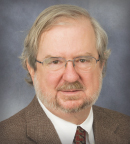The James P. Allison Institute at The University of Texas MD Anderson Cancer Center has announced the appointment of its first members, including pioneering researchers who have made notable contributions to science as well as rising stars on the path toward important breakthroughs. This group will bring diverse expertise in immunobiology to lead groundbreaking research that will deepen the understanding of the immune system and bring the benefits of immunotherapy to all patients. Here are the inaugural members.

James P. Allison, PhD
James P. Allison, PhD, is recognized internationally for his foundational discoveries in T-cell biology, which launched the field of cancer immunotherapy. For his contributions, he was awarded the 2018 Nobel Prize in Physiology or Medicine. His most notable discoveries include determining the T-cell receptor structure and recognizing that CD28 is the major co-stimulatory molecule that allows full activation of naive T cells and prevents anergy in T-cell clones. These seminal findings established the field of immune checkpoint blockade therapy for cancer and led to the development of ipilimumab, the first U.S. Food and Drug Administration–approved immune checkpoint inhibitor.
Padmanee Sharma, MD, PhD, pioneered the first neoadjuvant clinical trial with immune checkpoint therapy in 2006, establishing safety and clinical responses to advance immunotherapy toward earlier disease stages. Her work also provided the first clinical data demonstrating that bladder tumors can respond to immune checkpoint therapy.
Jennifer Wargo, MD, is Professor of Surgical Oncology and Genomic Medicine and Director of MD Anderson’s Platform for Innovative Microbiome and Translational Research. Dr. Wargo pioneered a new understanding of how the gut microbiome influences responses to immunotherapy and other cancer treatments. Through this research, she and her team have determined how microbiome changes can positively impact immunotherapy responses, leading to an ongoing dietary intervention trial in melanoma.
Sangeeta Goswami, MD, PhD, is Assistant Professor of Genitourinary Medical Oncology and Immunology at MD Anderson. Dr. Goswami cares for patients with bladder and kidney cancers and conducts discovery and translational research that integrates the fields of epigenetics and immunology. She is leading pioneering studies focused on identifying epigenetic pathways that regulate differentiation and function of immune cell subsets.
Kenneth Hu, PhD, joins MD Anderson as Assistant Professor of Immunology. While a postdoctoral researcher, he developed ZipSeq, a novel technique using light-based uncaging of nucleotides to barcode cells of interest and map single-cell sequencing data back to defined regions in a tissue. His research at MD Anderson will focus on broadening the applications of this technique to study spatial tumor heterogeneity and its role in dictating responses to immunotherapy.
Garry Nolan, PhD, is the Rachford and Carlota A. Harris Professor in the Department of Pathology at Stanford University School of Medicine. His research interests include hematopoiesis, cancer and leukemia, autoimmunity and inflammation, and computational approaches for network and systems immunology. His efforts are aimed at enabling a deeper understanding of normal immune function as well as detailed substructures of leukemias and solid cancers and their interactions with the immune system.

